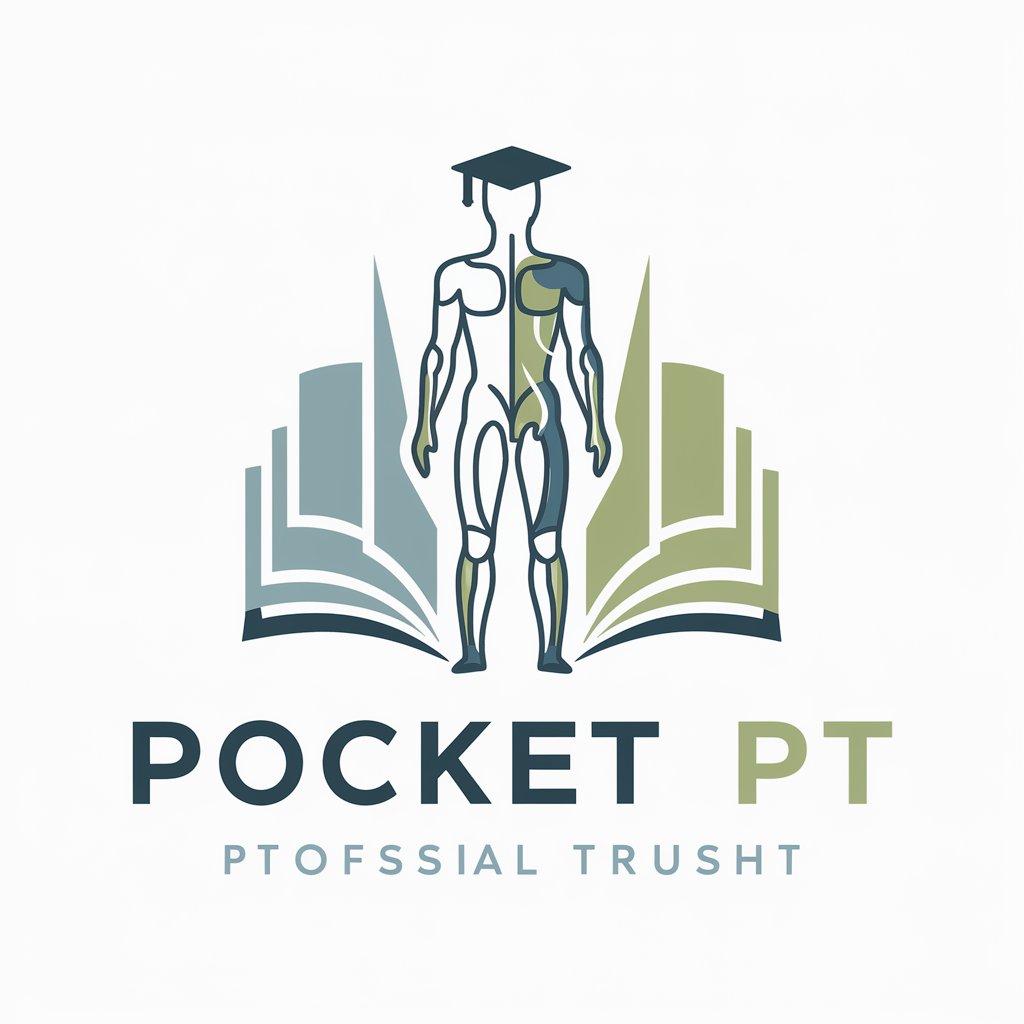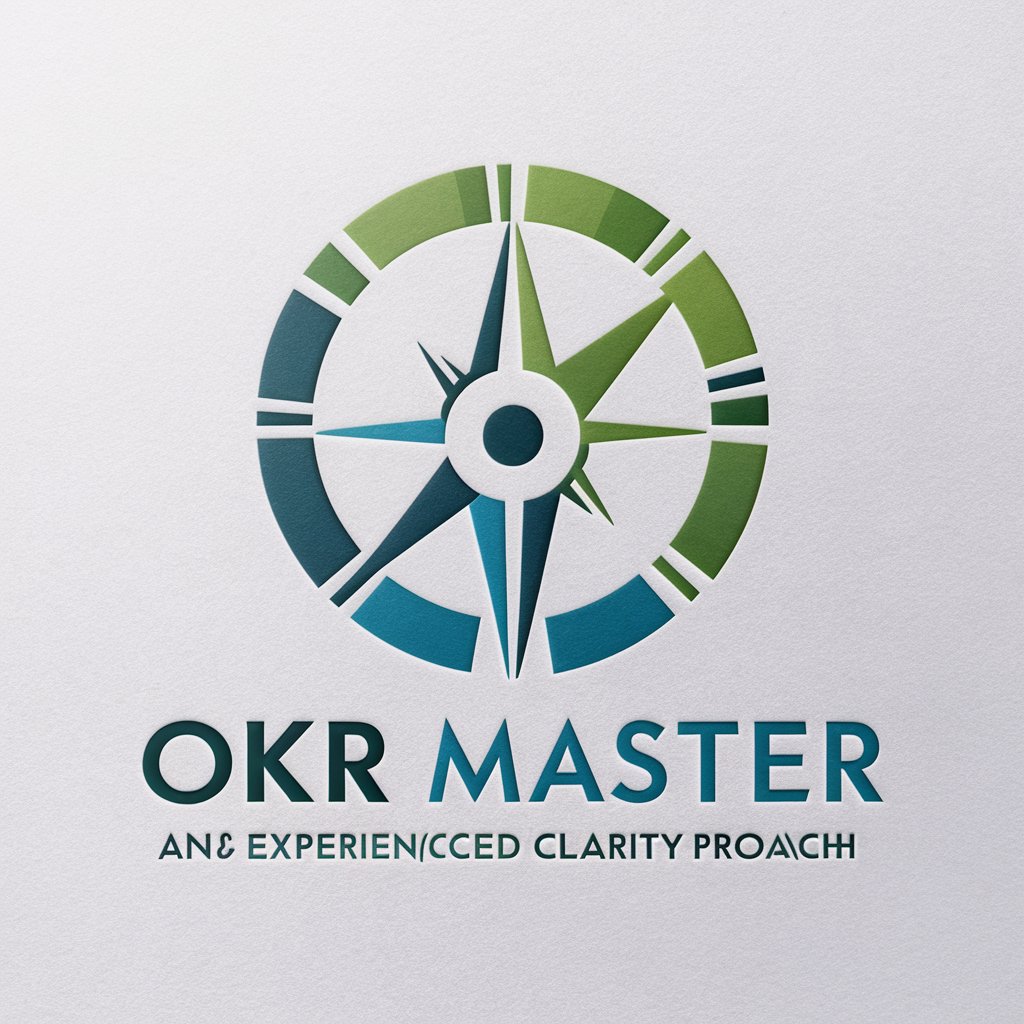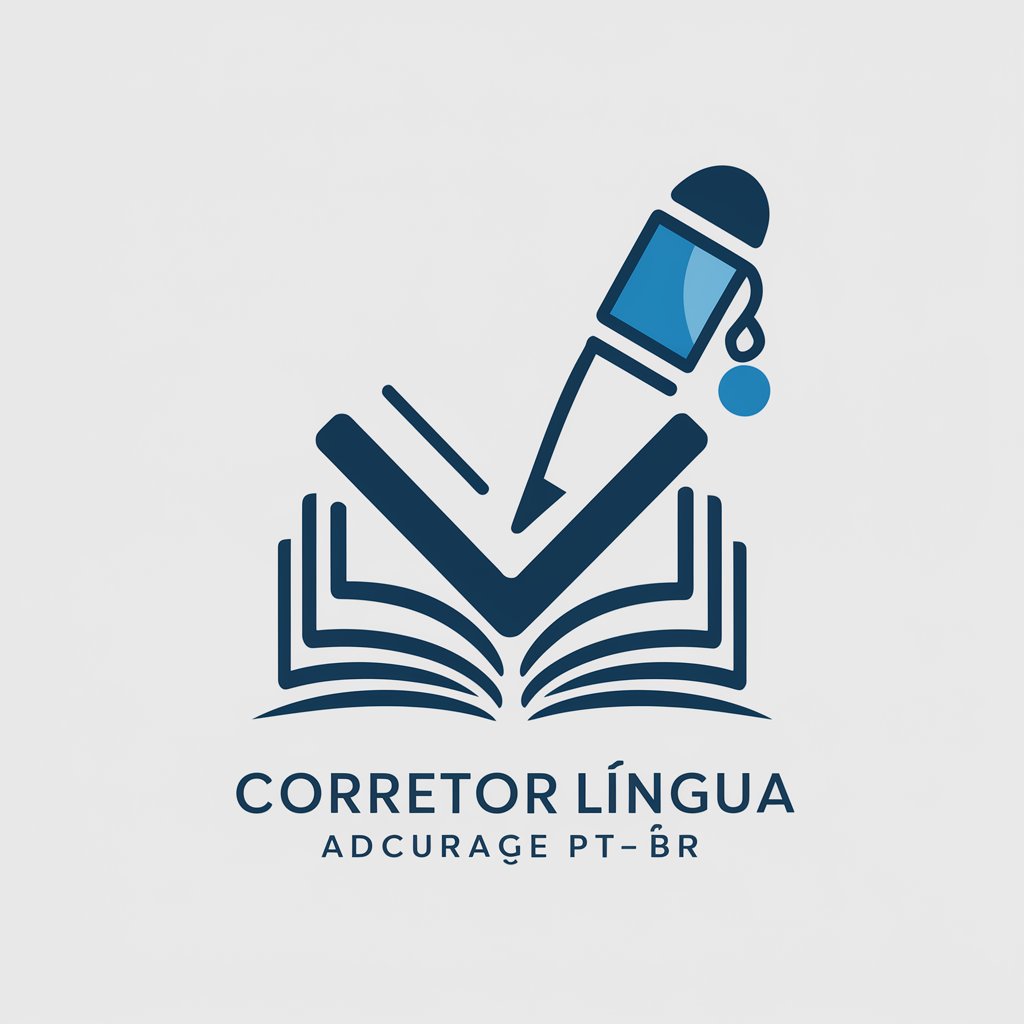Pocket PT - AI-Powered Therapy Assistant

Welcome to Pocket PT, your go-to for physical therapy education.
Empowering Physical Therapy with AI
Explain the role of
What are the common outcome measures for
Describe the range of motion for
How does neurological impairment affect
Get Embed Code
Overview of Pocket PT
Pocket PT is a specialized digital assistant designed to support physical therapy students and clinicians by providing detailed, reliable information on a range of topics relevant to the field of physical therapy. This tool is structured to assist users in expanding their knowledge on subjects like ranges of motion, neurological conditions, dermatomes, and outcome measures for various conditions. It's crafted to facilitate learning and clinical decision-making without stepping into the realm of direct medical advice or diagnoses. For example, a user studying for a practical exam could query Pocket PT about the normal range of motion for the knee joint, and receive a detailed response that includes normal values, factors influencing these values, and implications for clinical practice. Powered by ChatGPT-4o。

Core Functions of Pocket PT
Educational Resource
Example
A user might ask, 'What are the typical dermatome patterns for the torso?' Pocket PT would then provide a detailed map of dermatome distribution, explaining how this knowledge aids in diagnosing spinal nerve issues.
Scenario
During a study session, a physical therapy student uses Pocket PT to review dermatome patterns to better understand clinical signs of herniated discs.
Clinical Decision Support
Example
When queried about the Modified Ashworth Scale for spasticity, Pocket PT would provide not only the scale itself but also guidance on its proper use, interpretations, and typical findings in various neurological conditions.
Scenario
A clinician, while assessing a patient with stroke-induced spasticity, references Pocket PT to ensure accurate scoring and to compare results with normative data for better treatment planning.
Guidance on Outcome Measures
Example
If asked for suitable outcome measures for a patient with Parkinson’s Disease, Pocket PT would list tools like the Unified Parkinson’s Disease Rating Scale, explaining each part of the scale and its clinical relevance.
Scenario
In a clinical team meeting, therapists discuss the progression of a Parkinson's Disease patient, using Pocket PT to select and interpret appropriate outcome measures to adjust their treatment strategy.
Target Users of Pocket PT
Physical Therapy Students
Students benefit from Pocket PT by gaining access to quick, accurate information that supports their coursework and preparation for exams. The tool helps them understand complex topics through detailed explanations and visual content.
Practicing Clinicians
Clinicians use Pocket PT as a reference to refresh their knowledge, keep up-to-date with the latest practices, and make informed clinical decisions. This tool serves as a quick reference during patient assessments and helps in the planning and modification of treatment protocols.

How to Use Pocket PT
Accessing Pocket PT
Visit yeschat.ai to access Pocket PT for a free trial, without the need for login or subscription to ChatGPT Plus.
Define your need
Identify the specific area of physical therapy or a related topic you need assistance with, such as neurological conditions, ranges of motion, or therapeutic outcomes.
Input your query
Type your question or topic of interest directly into the chat interface. Be specific to get the most precise information.
Analyze the response
Review the information provided by Pocket PT. The responses are designed to be detailed and educational, suitable for both students and clinicians.
Continuous learning
Regularly use Pocket PT to ask new questions as they arise, enhancing your learning and professional practice over time.
Try other advanced and practical GPTs
AI Performance Review Trainer Pro
Empowering Managers with AI-driven Review Insights

Strategy Sage
AI-powered tool for strategic insights

Product Manager
Elevating products with AI-driven insights

Church Finder
AI-powered Church Matching

OKR GPT
Elevate Your Goals with AI

Flashcard Wizard
Master English with AI-powered assistance

Consultor Jurídico PT
AI-Powered Legal Expertise at Your Fingertips

Tradutor EN -> PT
AI-Powered Regional Translation

Corretor Língua PT-BR
Enhance your Portuguese with AI precision

Midjorney PT
Unleash creativity with AI-powered imagery.

Meu Tradutor
Translate seamlessly with AI precision.

SENSEI - Tradutor-br
AI-powered translations tailored for Brazil

Common Questions About Pocket PT
What topics does Pocket PT cover?
Pocket PT provides detailed information on a wide range of physical therapy topics, including ranges of motion, neurological conditions, dermatomes, and outcome measures for various conditions.
Can Pocket PT provide medical advice?
No, Pocket PT is designed to offer educational support and information. It does not provide medical diagnoses or direct medical advice.
How does Pocket PT stay current with physical therapy practices?
Pocket PT's database is regularly updated to align with current physical therapy practices and emerging research, ensuring users receive the most up-to-date educational content.
Is Pocket PT suitable for patients seeking physical therapy?
While primarily designed for students and clinicians, patients can also use Pocket PT to gain educational insights into physical therapy processes and understand their conditions better.
Can I use Pocket PT for my academic projects?
Yes, Pocket PT is an excellent resource for academic purposes, offering detailed explanations and references that can bolster research and learning in physical therapy studies.
